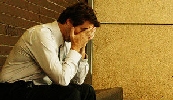Testosterone, a primary male sex hormone, is 'the' main substance responsible for a healthy sex drive in both men and women. During a man's youth, low levels of estrogen, a primary female sex hormone, are required to turn off the powerful, stimulating cell effects of testosterone. As a man ages, though, an imbalance often occurs between these two sex hormones, which can wreak havoc on an older man's sex life.
If low levels of testosterone are detected, hormone replacement therapy using injections, creams or patches can solve male libido problems rather easily. But, if a man produces plenty of testosterone, this option may only work for a little while at best. Many men may have healthy amounts of testosterone in their system, but it may not be readily available in its free form to stimulate receptor cells sites throughout the body.
In both instances men will need some minor intervention to help properly restore their normal hormone balance. Within the body are many different cell receptor sites located in the brain, muscles, nerves, and especially around the pelvic region. It is common for men over the age of 50 to have a serious estrogen overload problem that interferes with their sex drive. There are two main reasons why this may be happening.
An excess of estrogen could be increasing the production of a substance known as 'sex hormone-binding globulin' (or SHBG) in the bloodstream. This process renders the free form of testosterone inactive and unable to bind to cell receptor sites. Remember, in order for testosterone to be beneficial for all bodily functions, it must be in its unbound state to help build muscle mass, create new red blood cells, strengthen bone density, and maintain normal sexual functioning.
The second mechanism by which excessive amounts of estrogen may be causing problems, is when testosterone is being converted into estrogen in an enzyme process called 'aromatization'. Some men will even display symptoms of having low testosterone levels, by developing female body characteristics such as enlargement of the breasts. Other symptoms include chronic fatigue, lack of motivation or desire, poor memory and concentration, depression, and an inability to sexually perform.
A number of natural, herbal options have been shown to free up existing testosterone, while suppressing excessive estrogen levels. These methods may be more desirable to a lot of men who are otherwise healthy, but are mainly suffering from a lack of desire or have anxiety associated with performance issues.
Herbal extracts such as passionflower, 'chrysin' (a bioflavonoid that can also be extracted from various other plants) has shown some promising results at being able to inhibit the arometase conversion process. As chrysin is poorly absorbed into the blood, some people have not had the sexual 'wow' they were hoping for. It is not as successful on its own as when it is combined with 'piperine' (® bioperine). Piperine is the main substance found in the fruit of black pepper, and enhances the absorption of nutrients. But, chrysin is most helpful at reducing the anxiety associated with a bad sexual experience.
Nettle root is another herbal option that can help keep testosterone from attaching to globulin protein in the bloodstream. Constituents found in nettle root extract binds to SHGB protein instead of testosterone. Another added health benefit to taking nettle root, is that it has been demonstrated for many years to help reduce enlargement of the prostrate gland.
According to Dr. F. Batmanghelidj, M.D., founder of the 'water cure', do not underestimate the power of adequate body hydration. Competition exists for getting enough water in our daily diet, and surrounds us in the form of teas, sodas, juices, and coffee. None of these fluids count towards water intake, and most people mistakenly think they are getting enough water when they drink them.
Dr. B's remark in his famous book, 'Your Body's Many Cries For Water', "the prerequisite to a satisfying sex life and more-than-adequate libido will be in place when one or two glasses are drank before the event. Water will help in achieving a firmer and sustained erection". Simple and important information, yes? Do most people take care to implement it? No.
Nutritional solutions are not limited to, but certainly do include getting enough omega-3 essential fatty acid, zinc (an important male mineral), antioxidant protection (fresh, raw plant foods) on a regular basis. Omega-3 is another nutrient that helps decrease the risk of developing an enlarged prostate gland.
Keep in mind that a prescription drug may temporarily gloss over the superficial details of a sexual performance issue, but it can not make up for nutritional deficits or an emotional complex that just may be the underlying cause of the problem to begin with.
A word of caution is advised to those who have existing prostrate cancer, avoid using testosterone boosting nutritional supplements. Increasing testosterone by nutritional options in healthy subjects, however, does not increase the risk of developing prostate cancer.
With a little investigation and studying on your part, you just may be able to easily restore a very important aspect of your life. The main reason why we are all here, is to love and be loved without a shred of doubt or fear.



